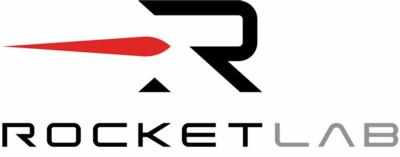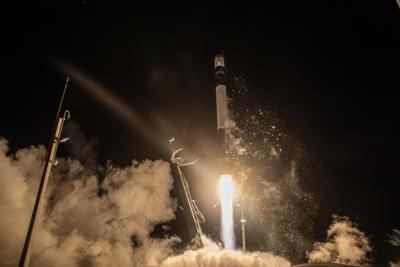Tue, Feb 20, 2024
New Mission Is Designed to Investigate Removing Space Junk from Orbit
Rocket Lab USA recently launched its 44th Electron rocket, successfully deploying an orbital debris inspection satellite for Astroscale Japan Inc.

The mission, named “On Closer Inspection”, launched from Pad B at Rocket Lab’s Launch Complex 1 in New Zealand at 03:52 NZDT February 19th, 2024 (14:52 UTC, February 18th). Electron deployed the Active Debris Removal by Astroscale-Japan (ADRAS-J), a satellite designed to test technologies and operations for approaching and monitoring debris objects in orbit, also known as space junk. The mission is the first phase in assessing the potential for satellites to rendezvous with orbital debris objects in future and assist in de-orbiting them, supporting space sustainability for future generations.
Following the successful launch on Electron, the 150-kilogram ADRAS-J satellite will now approach an aged, derelict rocket stage in orbit to observe it closely, understand how it behaves and determine potential methods for its assisted deorbiting in future. The rocket stage it will be observing is the Japanese H-2A upper stage left in low Earth orbit after the launch of the GOSAT Earth observation satellite in 2009. ADRAS-J will fly around the stage, 11 meters long and four meters in diameter, inspecting it with cameras and sensors. Astroscale’s full mission will take between three and six months to complete.

To enable the ADRAS-J satellite to rendezvous with the derelict H-2A upper stage in orbit, Rocket Lab had to design a mission with strict launch timing and precision orbital deployment parameters. Rocket Lab only received the final perigee, apogee, and inclination from Astroscale 20 days before launch, parameters that are typically determined many months in advance of a launch. Only then could argument of perigee targets for different days within the launch window be selected, essentially determining the timing of Electron Kick Stage burns to facilitate the unique elliptical orbit required depending on the launch date. The mission demanded highly accurate orbital insertion with tighter margins than required on most standard missions. The exact T-0 was only able to be defined the day prior to launch and the required LTAN accuracy only allows for +/- 15 seconds, demonstrating Rocket Lab’s capability to deliver rapid and responsive advanced guidance, navigation and control analysis.
‘On Closer Inspection’ was Rocket Lab’s second launch of 2024 and the Company’s 44th Electron launch overall.
More News
Decision Altitude (DA) A specified altitude (mean sea level (MSL)) on an instrument approach procedure (ILS, GLS, vertically guided RNAV) at which the pilot must decide whether to >[...]
Aero Linx: T-34 Association, Inc. The T-34 Association was formed in July 1975 so that individuals purchasing then military surplus T-34As had an organization which would provide s>[...]
As He Released The Brakes To Begin Taxiing, The Brake Pedals Went To The Floor With No Braking Action Analysis: The pilot reported that during engine start up, he applied the brake>[...]
“Legislation like the Mental Health in Aviation Act is still imperative to hold the FAA accountable for the changes they clearly acknowledge need to be made... We cannot wait>[...]
Also: IAE Acquires Diamond Trainers, Army Drones, FedEx Pilots Warning, DA62 MPP To Dresden Tech Uni The danger to the flight training industry and our future pilots is clear. Dona>[...]
 ANN's Daily Aero-Term (12.08.25): Decision Altitude (DA)
ANN's Daily Aero-Term (12.08.25): Decision Altitude (DA) ANN's Daily Aero-Linx (12.08.25)
ANN's Daily Aero-Linx (12.08.25) NTSB Final Report: Piper PA-31T3
NTSB Final Report: Piper PA-31T3 Aero-News: Quote of the Day (12.08.25)
Aero-News: Quote of the Day (12.08.25) Airborne-Flight Training 12.04.25: Ldg Fee Danger, Av Mental Health, PC-7 MKX
Airborne-Flight Training 12.04.25: Ldg Fee Danger, Av Mental Health, PC-7 MKX




